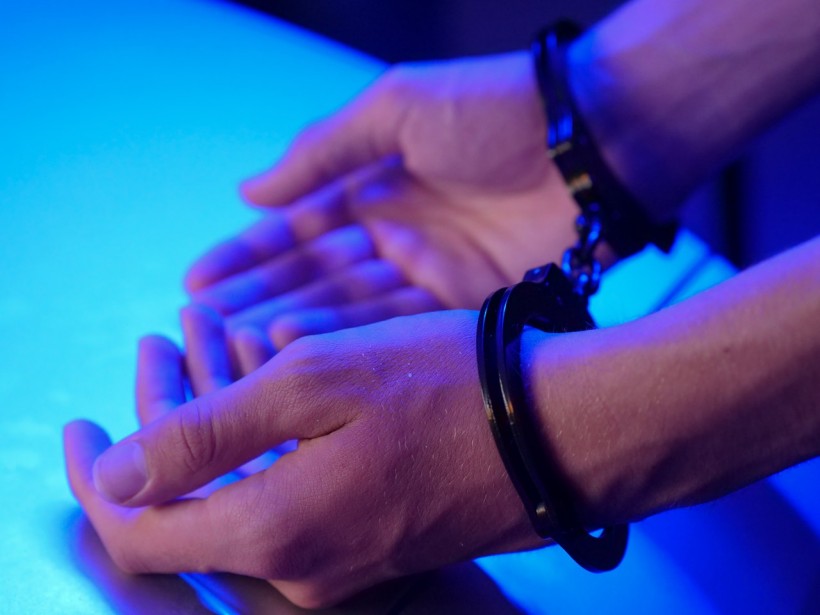Melissa Lucio: First Latina to Be Executed in Texas Maintains Death of Her 2-Year-Old Daughter in 2008 is Accidental

There are currently 197 inmates on Texas' Death Row, including Cameron County native Melissa Lucio who would be the first Latina executed by the State of Texas and the sixth woman executed in the United States in the past decade.
Lucio and her husband were moving out of their second-story apartment in February 2007 when their 2-year-old daughter, Mariah, slipped down the staircase, according to her lawyers. Despite appearing to be in good health, she died two days later as a result of injuries sustained in her accident, per the Texas Public Radio.
During the trial in Cameron County, prosecutors presented a different theory: Lucio had intentionally and knowingly killed Mariah by abusing her. She was convicted of capital murder and sentenced to death.
Now facing an April 27 execution date, Lucio is making one last attempt to save her life. Her attorneys filed a motion to withdraw or modify the execution date, arguing she was denied a fair trial and wrongfully convicted.
Key to Lucio's Claim of Innocence: A Police Interrogation
Since then, Lucio has been on death row for 14 years, but a five-hour police interview the night Mariah died is crucial to her claim of innocence.
Pressured repeatedly in admitting to abusing her daughter while deprived of food and sleep, Lucio eventually answered, "I guess I did it," her attorneys stated in their motion.
Lucio had a long history of being sexually and physically abused, according to Vanessa Potkin, an attorney for Lucio and director of special litigation at the Innocence Project, making her vulnerable to the "aggressive, intimidating and psychological" tactics of the male officers.
Potkin said that during the late-night interrogation, officers also analyzed Lucio's body language, assuming her guilty because she slumped over and made little eye contact.
The jury never heard testimony to that effect.
Lucio's defense team said they attempted to present two expert witnesses to testify that her "confession" was untrustworthy because of her background of abuse, which caused her to please others. However, both witnesses were excluded by the judge that their testimony was irrelevant, as per the lawyers' motion.
The attorneys wrote that there are "serious reasons to doubt the jury's verdict and death sentence." The jury was denied the opportunity to hear Lucio's defense, which would have contextualized her custodial statement, the principal evidence against her.
ALSO READ: Latino Civil Rights Group Collaborates With DoorDash to Provide Training, Grants to Latino Workforce
False, Fabricated Confessions, Not Uncommon
According to the National Registry of Exonerations, about 17% of exonerations in 2019 contained false or fabricated confessions. People may plead to crimes they did not commit in part due to intimidation, fear, or impaired reasoning ability, according to the Innocence Project, an organization that tries to exonerate the unfairly convicted.
A state medical examiner discovered bruising on Mariah's body, a fracture in her arm, missing or patchy hair, and marks on her back, concluding that she had been beaten and died of a head injury.
Potkin, on the other hand, believes that the forensic evidence in the case has never been properly examined to determine the medical support that Mariah died accidentally.
In their latest motion, Lucio's attorneys are seeking more time to show evidence of her innocence.
If the Cameron County District Attorney does not withdraw its request for an execution date, the case will most likely continue in the state court, according to Potkin. A prospective clemency application would be decided by the Texas Board of Pardons and Parole, as well as Governor Abbott.
In 2020, Lucio's case became the subject of a documentary by film director and journalist Sabrina Van Tassel, titled "The State of Texas vs. Melissa."
READ MORE: Russia Threatens to Drop International Space Station on America, Europe Over Ukraine War Sanctions
This article is owned by Latin Post.
Written by: Jess Smith
WATCH: The Case of Melissa Lucio - PowerfulJRE
Subscribe to Latin Post!
Sign up for our free newsletter for the Latest coverage!













